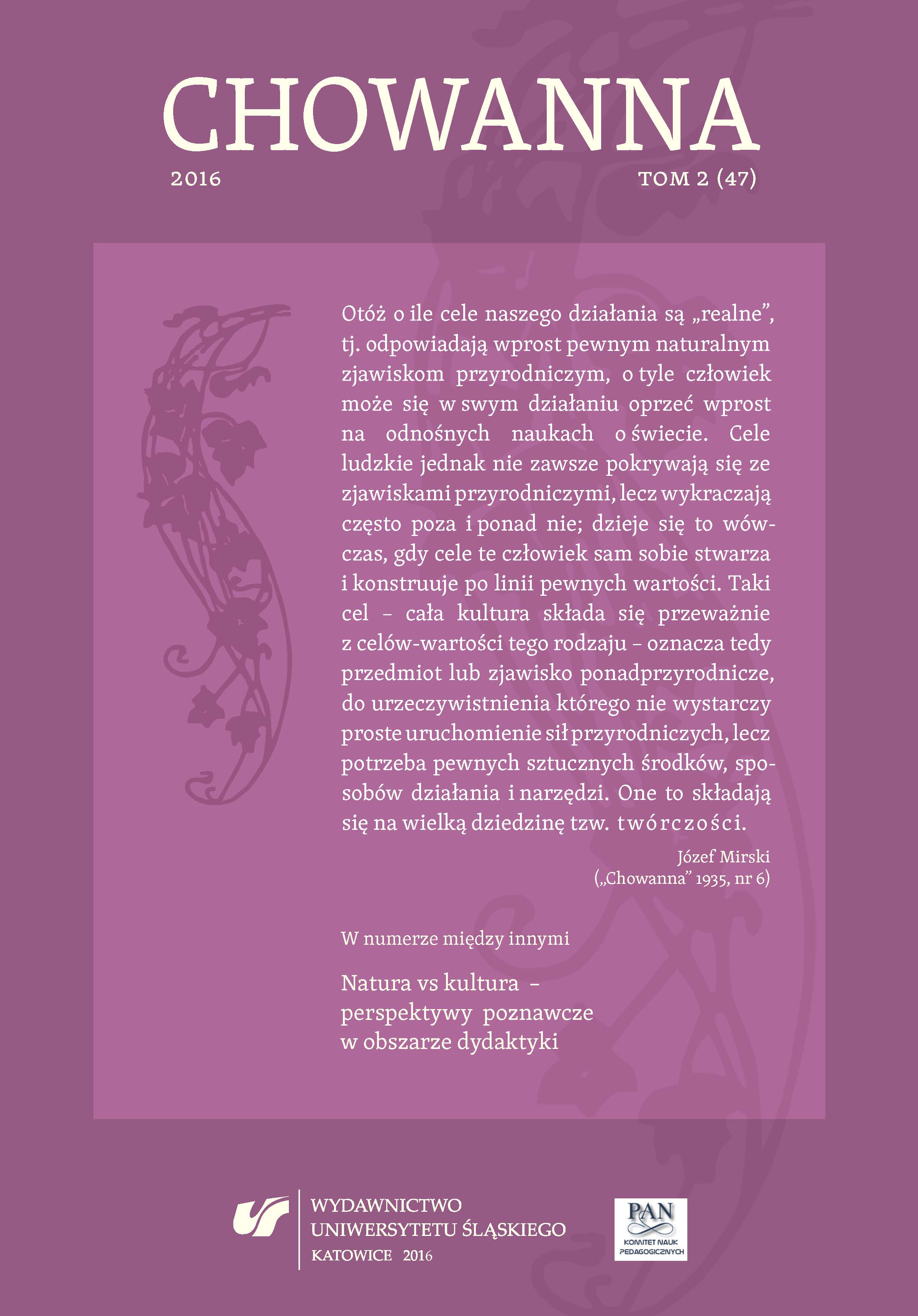Iskry (ze) światów możliwych. Marginesy „rozpakowanego ciemnego dzieła”
i jego literaturoznawcze przedłużenie (wokół koncepcji „ciemnych iskier” Krzysztofa Maliszewskiego)
Sparks (of/from) the Possible Worlds. Marigins of the “Unpacked Dark Master Piece” and the Prolongation Thereof in Literary Studies (Around “dark sparks” concept by Karol Maliszewski)
Author(s): Monika Jaworska-WitkowskaSubject(s): Social Sciences, Education, Psychology, Sociology
Published by: Wydawnictwo Uniwersytetu Śląskiego
Keywords: fragment; cultural interior; pedagogical profit from various places; possibile worlds; literaty fiction; sparks as a pedagogical metaphor; maragins; cultural explosions; jumps of impulses; ontological
Summary/Abstract: The present study undertakes the issue of justification of cultural texts as a valid source of impulses for pedagogy – debating the approach and its marigins represented by the book by Krzysztof Maliszewski Ciemne iskry. Problem aktualizacji pedagogiki kultury [Dark Sparks. The Problem of Actualization of Pedagogy of Culture] (2013). I am interested in a methodological debate for the pedagogy of culture. My intention is to prolong the Maliszewski’s point of view within an overall relationship: pedagogy versus culture in search for new sources of inspiration. There is an urgent need of ligitimization in methodological terms of this extended vision of pedagogical influence towards pedagogical discourse, overpassing the limits of a narrow scienticism or academic research rigour.The key suggestions stem from literary studies and from cultural anthropology. The basic “sparks” within the title should be taken out from the culture together with other metaphores describing this methodological situation, as the fragment poetics and anthropology, both becoming in my approach essential for post-conventional integrity of discourse. The fragment poetica seems more suitable to represent specificity of the humanistic cognition than the spark metaphor itelf. Similarly useful seem to be: gliding of concepts as in K. Mannheim, glimmering of senses following J. Brach-Czaina, truth clearance as in M. Heidegger, explosions and the lines of semantic intersection as analyzed in J. Lotman. I have chosen for pedagogical legitimizing the texts possibly remote from the status of truth in pedagogy, since they are dealing with literary fiction within the literary conception of possibile worlds. The main idea of my paper brings a suggestion that if we are able to confirm the status of possibile worlds for pedagogy, i.e. make the literature stable and legitimate source of pedagogicalknowledge (experience), then the metaphors of sparks, points of condensation, density of meanings, allothopy, will gain cognitive value of enriching and endeepning pedagogical discourse as such. While K. Maliszewski has chosen his fragments from the culture, he suggested them to be just missing to be restituted but it seems to me not enough in order to bring an essential transformation of pedagogy. I indicate the need of actualization of the overall relationship of pedagogy versus culture.
Journal: Chowanna
- Issue Year: 2016
- Issue No: 47 (2)
- Page Range: 319-339
- Page Count: 21
- Language: Polish

